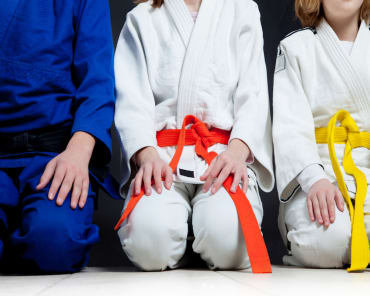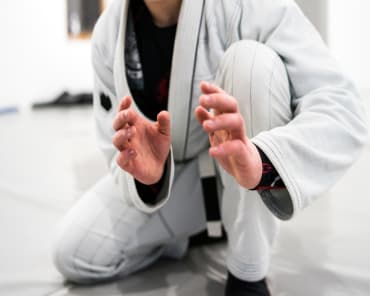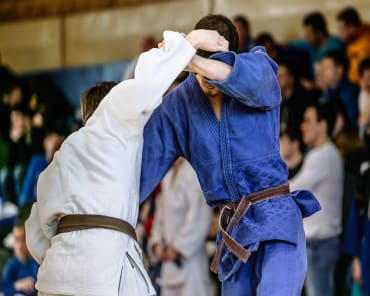Brazilian Jiu-Jitsu (BJJ) is not just a physical discipline; it is a way of life that extends beyond the techniques practiced on the mats. Central to the ethos of BJJ is the importance of respecting the training environment, the mats, and the academy as a whole. In this blog, we'll delve into the significance of this respect and the principles that guide practitioners in preserving the sanctity of the training space.
1. The Mats as Sacred Ground
In BJJ, the mats are considered sacred ground – a space where practitioners immerse themselves in the art, learn, and grow. Respecting the mats involves recognizing their symbolic importance and treating them with the reverence they deserve. Before stepping onto the mats, practitioners are mindful of the energy and dedication that has been invested in this space by instructors and fellow practitioners.
2. Hygiene and Cleanliness
Respecting the mats means adhering to strict hygiene standards. Practitioners are expected to arrive for training with a clean gi, trimmed nails, and good personal hygiene. Dirty or unclean gear not only poses health risks to training partners but also disrespects the shared space. A commitment to cleanliness is fundamental to creating a safe and healthy training environment.
3. Punctuality and Timeliness
Being on time for classes is a manifestation of respect for the academy and fellow practitioners. It demonstrates a commitment to the shared schedule, allowing classes to run smoothly and efficiently. Arriving late disrupts the flow of the session and reflects a lack of consideration for others who have arrived on time and are ready to engage in focused training.
4. Mindful Communication
Respecting the academy involves mindful communication with instructors, training partners, and other members. Practitioners listen attentively during instruction, ask questions respectfully, and engage in positive and constructive communication. A culture of open and respectful communication enhances the learning experience for everyone and contributes to the overall harmony within the academy.
5. Gratitude and Acknowledgment
Expressing gratitude is an integral part of respecting the academy. Whether it's thanking an instructor for their guidance or acknowledging a training partner for a challenging roll, showing appreciation fosters a positive atmosphere. Practitioners recognize that the academy is a collaborative space where everyone plays a role in each other's development.
6. Equipment Maintenance
Respecting the academy extends to the proper care of equipment. Practitioners are responsible for maintaining their own gear, ensuring that it is in good condition and free from excessive wear and tear. This includes regularly washing and caring for the gi, ensuring that belts are tied neatly, and reporting any issues with mats or equipment to the academy staff promptly.
7. Controlled Intensity During Sparring
During sparring sessions, practitioners exhibit respect by maintaining controlled intensity. The mats are not a place for unnecessary aggression or ego-driven behavior. Practitioners approach sparring with the mindset of mutual benefit, focusing on technique and learning rather than trying to dominate their training partners. This mindset contributes to a positive and collaborative training environment.
8. Safety First
Respecting the academy involves prioritizing safety above all else. Practitioners adhere to the established safety guidelines, refrain from reckless behavior, and prioritize the well-being of themselves and their training partners. Reporting injuries promptly and following safety protocols demonstrates a commitment to creating an environment where everyone can train safely.
9. Recognizing and Adapting to Academy Culture
Each BJJ academy has its own unique culture and set of rules. Respecting the academy involves recognizing and adapting to this culture. Whether it's bowing on and off the mats, addressing instructors with specific titles, or following academy-specific traditions, practitioners honor and contribute to the established norms of the training space.
10. Cleanliness Beyond the Mats
Respecting the academy extends beyond the mats to common areas, changing rooms, and other shared spaces. Practitioners take responsibility for maintaining cleanliness throughout the entire facility. This includes disposing of trash properly, keeping changing areas tidy, and leaving spaces as they were found.
In conclusion, respecting the mats and the academy in Brazilian Jiu-Jitsu is not just a set of rules; it's a reflection of the values and principles that define the BJJ community. By upholding cleanliness, punctuality, mindful communication, safety, and an overall positive attitude, practitioners contribute to the sanctity of the training environment. The academy becomes a place where mutual respect thrives, fostering a culture of growth, camaraderie, and shared dedication to the art of Brazilian Jiu-Jitsu.






